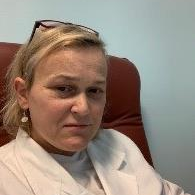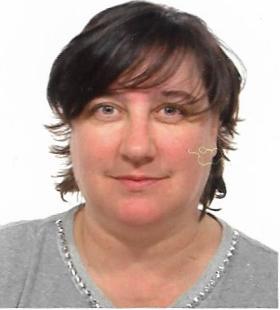Studying at the University of Verona
Here you can find information on the organisational aspects of the Programme, lecture timetables, learning activities and useful contact details for your time at the University, from enrolment to graduation.
Academic calendar
The academic calendar shows the deadlines and scheduled events that are relevant to students, teaching and technical-administrative staff of the University. Public holidays and University closures are also indicated. The academic year normally begins on 1 October each year and ends on 30 September of the following year.
Course calendar
The Academic Calendar sets out the degree programme lecture and exam timetables, as well as the relevant university closure dates..
| Period | From | To |
|---|---|---|
| 1° e 2° semestre (corsi annuali) PROFESSIONI SANITARIE | Oct 3, 2022 | Sep 30, 2023 |
| 1 SEMESTRE PROFESSIONI SANITARIE | Oct 3, 2022 | Dec 23, 2022 |
| 2 SEMESTRE PROFESSIONI SANITARIE | Jan 9, 2023 | Sep 30, 2023 |
Exam calendar
Exam dates and rounds are managed by the relevant Medicine Teaching and Student Services Unit.
To view all the exam sessions available, please use the Exam dashboard on ESSE3.
If you forgot your login details or have problems logging in, please contact the relevant IT HelpDesk, or check the login details recovery web page.
Should you have any doubts or questions, please check the Enrollment FAQs
Academic staff
 stefania.battisti@univr.it
stefania.battisti@univr.it
 borghesi.a@mail.apss.tn.it
borghesi.a@mail.apss.tn.it
 chiara.cristofolini@univr.it
chiara.cristofolini@univr.it
 massimo.dibenedetto@univr.it
massimo.dibenedetto@univr.it
 maurizio.grigiante@unitn.it
maurizio.grigiante@unitn.it
 daniele.longo@apss.tn.it
daniele.longo@apss.tn.it
 rocco.micciolo@economia.unitn.it
rocco.micciolo@economia.unitn.it
 francesco.torre@apss.tn.it
francesco.torre@apss.tn.it
 3455941159
3455941159
Study Plan
The Study Plan includes all modules, teaching and learning activities that each student will need to undertake during their time at the University.
Please select your Study Plan based on your enrollment year.
1° Year
| Modules | Credits | TAF | SSD |
|---|
2° Year activated in the A.Y. 2023/2024
| Modules | Credits | TAF | SSD |
|---|
3° Year It will be activated in the A.Y. 2024/2025
| Modules | Credits | TAF | SSD |
|---|
| Modules | Credits | TAF | SSD |
|---|
| Modules | Credits | TAF | SSD |
|---|
| Modules | Credits | TAF | SSD |
|---|
Legend | Type of training activity (TTA)
TAF (Type of Educational Activity) All courses and activities are classified into different types of educational activities, indicated by a letter.
Biomolecular fondamentals of life - BIOLOGIA E GENETICA (2022/2023)
Teaching code
4S000089
Teacher
Credits
2
Language
Italian
Scientific Disciplinary Sector (SSD)
BIO/13 - EXPERIMENTAL BIOLOGY
Period
1 SEMESTRE PROFESSIONI SANITARIE dal Oct 3, 2022 al Dec 23, 2022.
To show the organization of the course that includes this module, follow this link: Course organization
Learning objectives
To provide knowledge of human biology in an evolutionary vision with particular reference to the molecular and cellular processes common to all living organisms.
Provide knowledge on the mutagenic action of chemical and physical agents. To provide knowledge relating to the transmission of hereditary traits. The student must be able to explain the cellular mechanisms underlying the functioning of the entire organism and grasp the pathogenetic significance of any alterations in them; she/he will also need to be able to recognize the different ways of transmitting Mendelian characters in humans.
At the end of the course, students will have to demonstrate that they have acquired the basic knowledge of the mechanisms that regulate cellular life and reproduction, the interactions between cells, between organisms and between organisms and the environment. In particular, they will need to know the mutagenic action of chemical and physical agents present in the environment. They will also have to demonstrate that they have acquired knowledge on the mechanisms of transmission of hereditary characters and will have to be able to recognize the ways of transmission of genetic diseases in humans. This basic knowledge is a pre-requisite for further specialized studies that will be the subject of the teachings of the subsequent years of the course.
Program
The development of modern biological thinking, the fundamental ideas General biology of prokaryotes. Relations between prokaryotes and other organisms. The eukaryotic cell: general aspects. The cell cycle and its regulation. Mitosis. The molecular basis of hereditary information: characteristics of DNA, its replication. Flow of gene information. Transcription, translation: the genetic code, the production of proteins in the eukaryotic cell. The genes of eukaryotes are discontinuous: the processing of messenger RNA (splicing). Regulation of gene expression in prokaryotes and eukaryotes. The architecture of the genome in eukaryotes. The chromosomes. Normal and pathological human karyotype. Anomalies of number and structure. Gene dosage and inactivation of the X chromosome in mammals, the determination of sex in the embryo. The mutations. The various types and the mechanisms that determine them. Pre-adactivity of mutations. Spontaneous mutations. Mutagenesis by chemical and physical agents. Mutagenesis test. DNA repair mechanisms. Somatic mutations and cancer. Sexual reproduction: meiosis, crossing-over, gametogenesis in humans. The experiments of G. Mendel. The laws of inheritance, the segregation of alleles. The independent assortment of genes. Association and recombination. Blood group genetics (ABO, Rh). Various types of inheritance: autosomal dominant, autosomal recessive, sex-linked. Methods of transmission of genetic diseases in humans, examples of AD, RA, X-linked diseases. Examples of family trees.
Bibliography
Didactic methods
The teacher will use frontal lessons. The teaching methods consist of classroom lessons during which the topics covered by the program will be addressed and discussed. The teacher will provide power point presentations to integrate the classroom lessons, usable on the moodle platform. For students who will be in isolation due to Covid positivity, streaming will be made accessible on moodle.
Learning assessment procedures
Written test potentially covering all the topics in the program, structured in multiple choice quiz + open questions. The objectives of the written test are: a) ascertaining the acquisition of theoretical knowledge; b) ascertaining the capacity for reasoning and individual re-elaboration of the notions acquired. The examination of the Biology and Genetics module will take place at the same time as the examination of the Biochemistry module. The final evaluation will take into account the results from each module; the exam is only passed if the student receives a positive evaluation for both modules. The student can withdraw or refuse the proposed grade.
Evaluation criteria
The evaluation will be expressed out of thirty and will be considered positive if greater than or equal to 18/30.
Exam language
Italiano
Career prospects
Module/Programme news
News for students
There you will find information, resources and services useful during your time at the University (Student’s exam record, your study plan on ESSE3, Distance Learning courses, university email account, office forms, administrative procedures, etc.). You can log into MyUnivr with your GIA login details: only in this way will you be able to receive notification of all the notices from your teachers and your secretariat via email and soon also via the Univr app.
Graduation
Documents
| Title | Info File |
|---|---|
|
|
pdf, it, 142 KB, 14/04/23 |
Gestione carriere
Orario Lezioni
Documents
| Title | Info File |
|---|---|
|
|
pdf, it, 509 KB, 11/04/24 |
|
|
pdf, it, 499 KB, 11/04/24 |
|
|
pdf, it, 621 KB, 11/04/24 |
|
|
pdf, it, 1453 KB, 07/02/24 |












